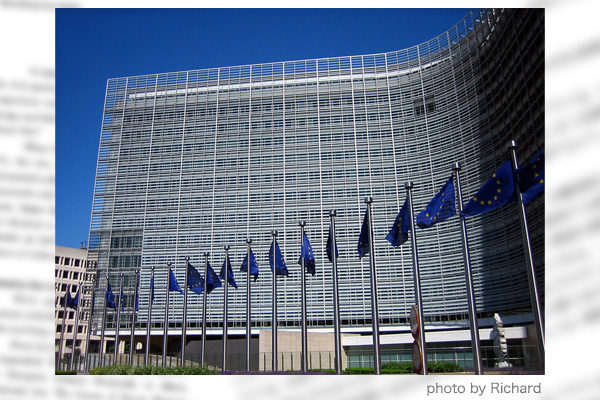More than 40 countries agreed to phase out coal power generation at the 26th Conference of Parties to the United Nations Framework Convention on Climate Change, or COP26, in Glasgow last year, but nearly 200 coal-fired power plants are under construction in China and Southeast Asia. Meanwhile, natural gas and crude oil prices have shot up remarkably. The European economy has been plagued with serious electricity shortages and energy price spikes. This is the same case with Japan. Advanced countries including Germany have failed to take advantage of solar and wind power generation to effectively reduce carbon dioxide emissions. The world with France in the lead has made clear a comeback to nuclear energy.
France-led movement
After Angela Merkel resigned as German chancellor late last year, there is no leader who strongly promote renewable energy in Europe. In Japan where renewable energy’s share of total power generation has reached 20%, solar photovoltaics output has declined under snowy weather, leading to an almost daily electricity crisis in which the power generation reserve margin slips below 3%. In Germany where the renewable energy share has topped 40%, CO2 emissions per kilowatt-hour are not so different from those in Japan. As the wind for power generation has weakened, Europe faces electricity shortages and energy price spikes. As renewable energy’s vulnerability has been recognized rapidly, France has taken the initiative in promoting nuclear power generation.
France has withdrawn a plan to reduce the nuclear share from 77% at present to 50% by 2025. Electricite de France (EDF) has announced that it agreed with large companies in such countries as the Czech Republic, Poland and India to cooperate in constructing 1.65-million-kilowatt European pressure reactors (EPRs) in the world. In France, six EPRs will be constructed. Britain has also decided to expand nuclear power generation, with its power utility EDF Energy planning to introduce many EPRs. In Poland that is considering to introduce nuclear energy, EDF has proposed the construction of four to six EPRs with total capacity of 6.6 million to 9.9 million kilowatts at two to three locations.
Meanwhile, New Scale Technologies, a U.S. company in which Japan’s JGC Holdings Corp. and IHI Corp. have stakes, is set to build small modular reactors (SMRs) in Romania with support from the U.S. Trade and Development Agency. GE Hitachi Nuclear Energy of the United States has agreed with BWXT Canada over engineering and procurement towards designing and production of BWRX-300 SMRs in order to promote the commercialization of the reactor in Canada.
EU to promote investment in nuclear plants
Furthermore, on January 1, the European Commission, the executive arm of the European Union, proposed to list nuclear power generation as one of sustainable economic activities for the global environment and to promote investment in nuclear plants.
The EU has considered how to treat nuclear energy and natural gas under the EU taxonomy, a scheme to categorize environmentally sustainable economic activities, to realize carbon neutrality, or net-zero greenhouse gas emissions, by 2050.
The European Commission said that nuclear energy and natural gas have roles to play in promoting a transition to future energy systems centering on renewable energy. This view has met opposition from Germany that has promoted a nuclear phase-out policy. If the Commission’s proposal is approved near the end of this month, however, nuclear power generation will be subjected to the promotion of investment and loans.
Tadashi Narabayashi is a specially appointed professor at the Tokyo Institute of Technology and a director at the Japan Institute for National Fundamentals.


